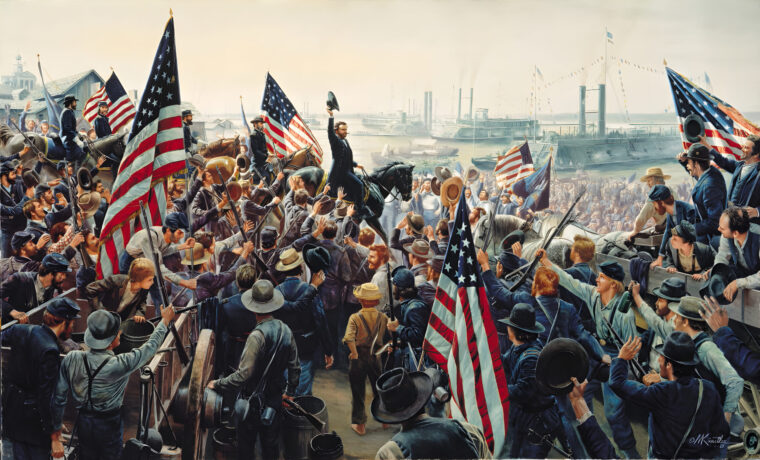
Jefferson Davis
Big Black River
By Kirk FreemanBig battles make the history books. But for the soldiers, it was often the smaller, fiercer fights they remembered most keenly later in their lives. Read more

Jefferson Davis, President of the Confederacy during the American Civil War, was a hero of the U.S. Army during the Mexican War and U.S. Secretary of War. Born in Kentucky, Jefferson Davis represented the state of Mississippi in the U.S. Senate and the House of Representatives. Jefferson Davis was the only individual to serve as President of the Confederacy. In the last days of the war, Jefferson Davis fled the Confederate capital of Richmond, Virginia, and was captured by Union cavalry in Georgia. Jefferson Davis was imprisoned and indicted on treason charges but received a presidential pardon in 1868. He died in 1889 at the age of 81.

Jefferson Davis
Big battles make the history books. But for the soldiers, it was often the smaller, fiercer fights they remembered most keenly later in their lives. Read more
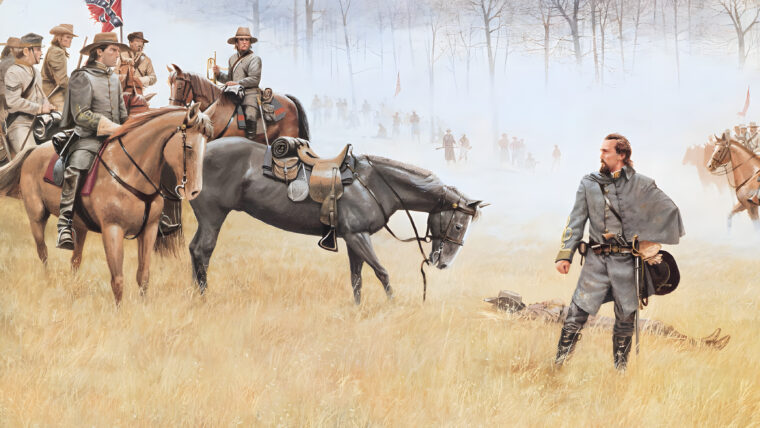
Jefferson Davis
By Edward Holub and John Marchetti
“For God’s sake, if Mr. Forrest will let me alone, I will let him alone. Read more
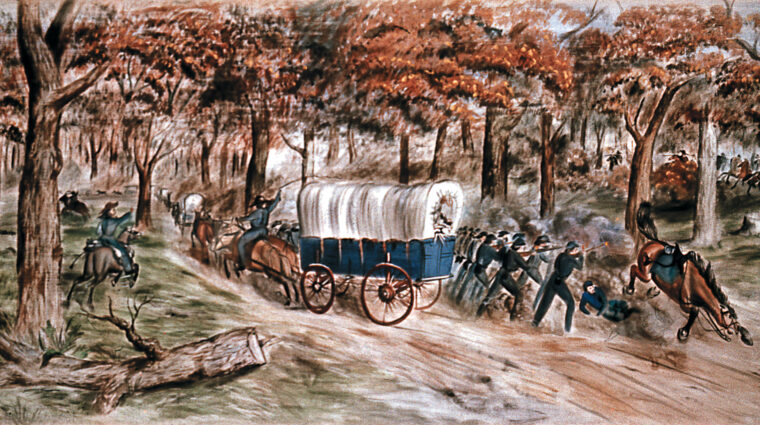
Jefferson Davis
During the evening of September 20,1863, the following message reached Washington and was given to the president of the United States: “We have met with a serious disaster; extent not yet ascertained. Read more
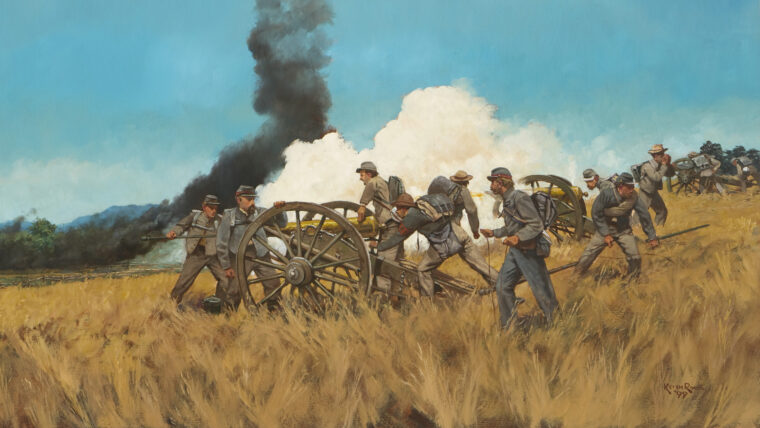
Jefferson Davis
On September 7, 1862, Colonel Walter Taylor of General Robert E. Lee’s staff wrote to his sister: “The Yankee papers of the 6th exhibit a gloomy picture for our enemy. Read more
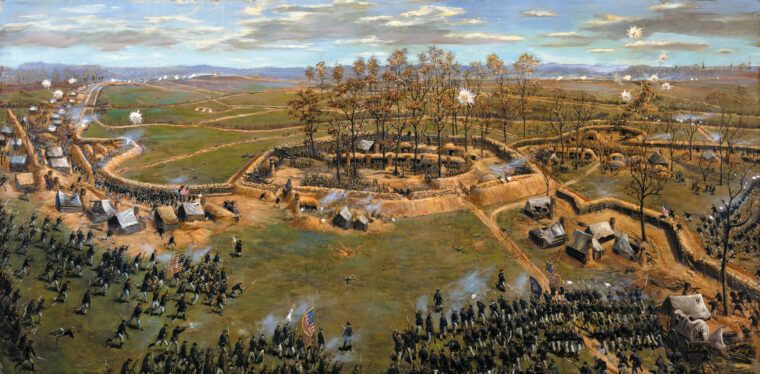
Jefferson Davis
By the early spring of 1865, the Southern Confederacy was on the cusp of extinction. In every theater of the four-year-old Civil War, the gray-clad Rebels were getting the worst of things. Read more
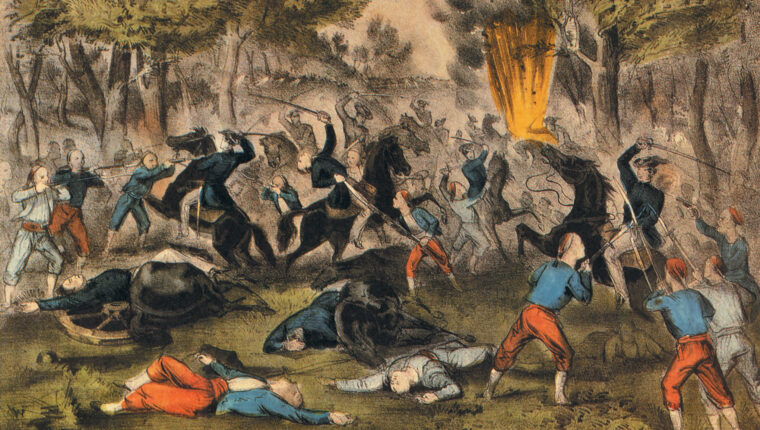
Jefferson Davis
“But for you, there would have been no Battle of Bull Run.” When Confederate President Jefferson Davis made that blanket statement in the summer of 1862, he was not addressing Pierre G.T. Read more
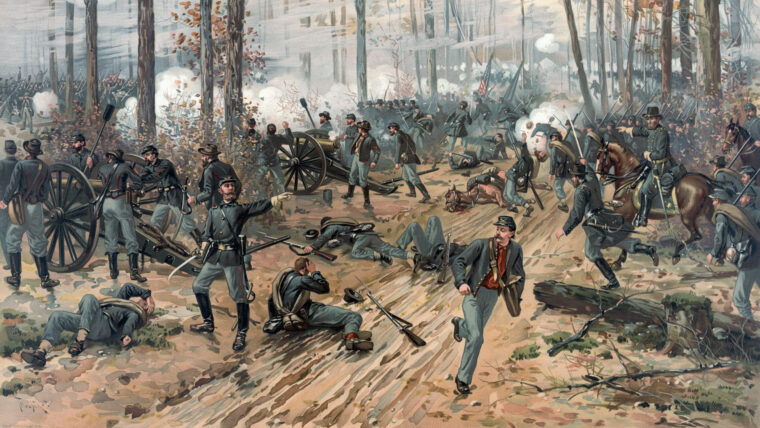
Jefferson Davis
By the end of the winter campaign of 1861-1862, Union Maj. Gen. Ulysses S. Grant had shattered the Confederate defenses in northwest Tennessee with a combined land and water attack on Forts Henry and Donelson, forcing General Albert Sidney Johnston to abandon his bastion at Nashville and retreat southward. Read more
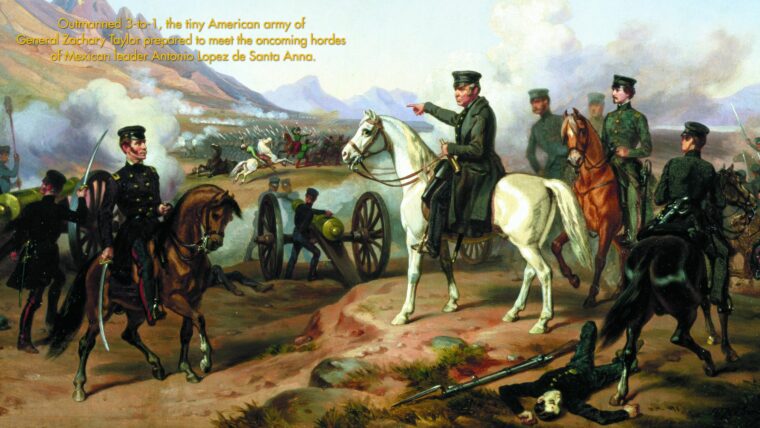
Jefferson Davis
It was the spring of 1846, roughly nine months before the Battle of Buena Vista. It had become apparent to everyone at this point that a Mexican-American War was inevitable, and diplomatic efforts between the two countries had failed. Read more
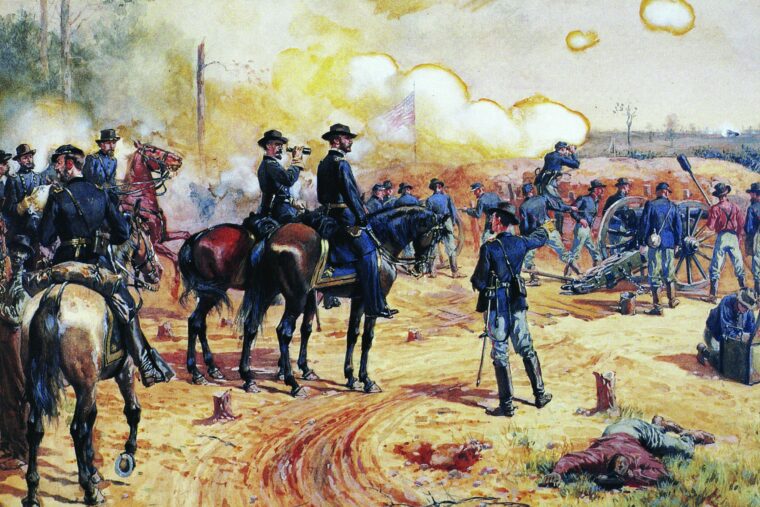
Jefferson Davis
During the early afternoon of July 9, 1864, the 103rd Ohio Volunteer Infantry Regiment of Maj. Gen. John M. Read more
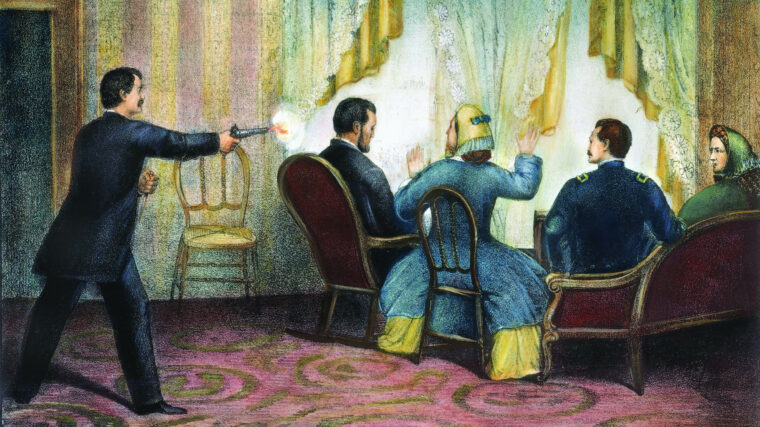
Jefferson Davis
In the late hours of April 14, 1865, Secretary of War Edwin Stanton sat at a small table in the Petersen House across the street from Ford’s Theater in Washington, D.C. Read more
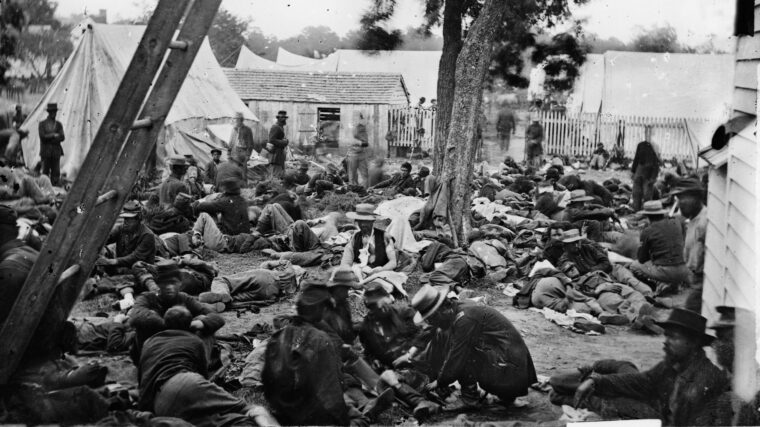
Jefferson Davis
Safe behind its ocean barriers, the United States paid scant attention to the wars that raged abroad during the early 19th century, taking little notice of the lessons that might have been learned from the European experience with mass killing. Read more
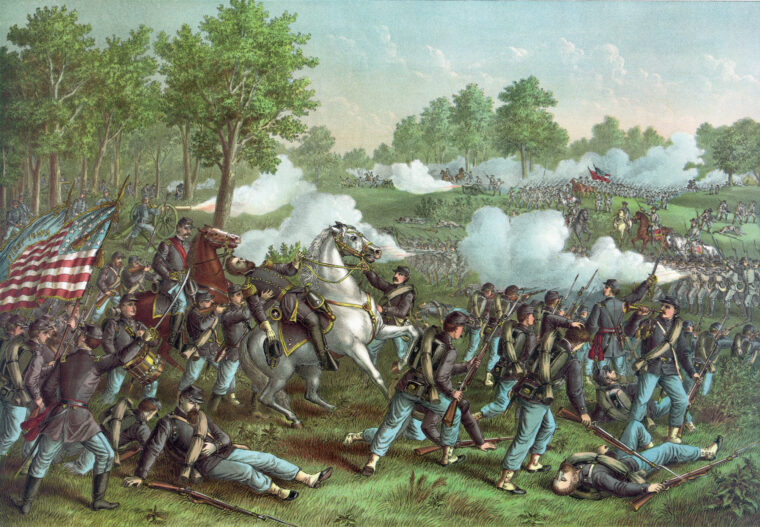
Jefferson Davis
At the beginning of 1861, Missouri was in turmoil. A slave state since its inception in 1820, Missouri had grown increasingly tied to urban industry. Read more
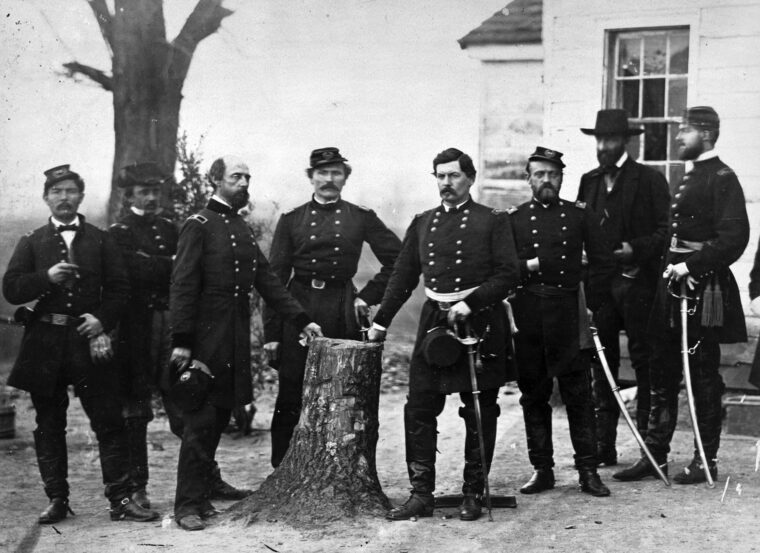
Jefferson Davis
After an almost uninterrupted, four-month-long string of Union successes beginning in early 1862, followed by the advance of a 100,000-man enemy army to the eastern outskirts of its capital at Richmond, Virginia, the Confederacy suddenly found itself in a life-or-death struggle for its very survival. Read more
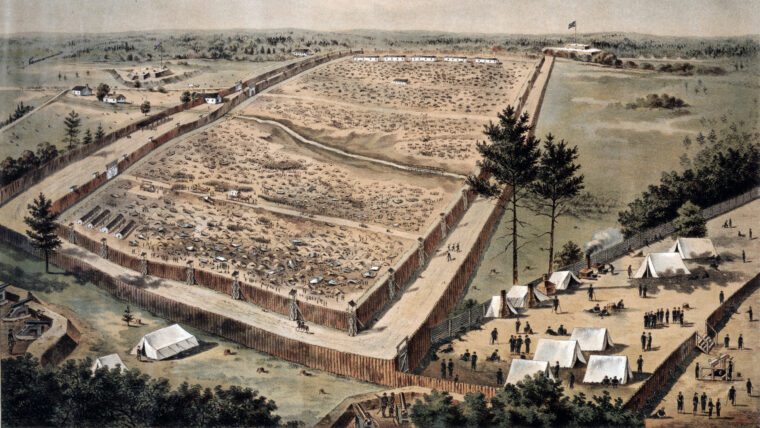
Jefferson Davis
The June 19, 1861, editorial in the Charleston Mercury newspaper warned: “War is bloody reality, not butterfly sporting. Read more
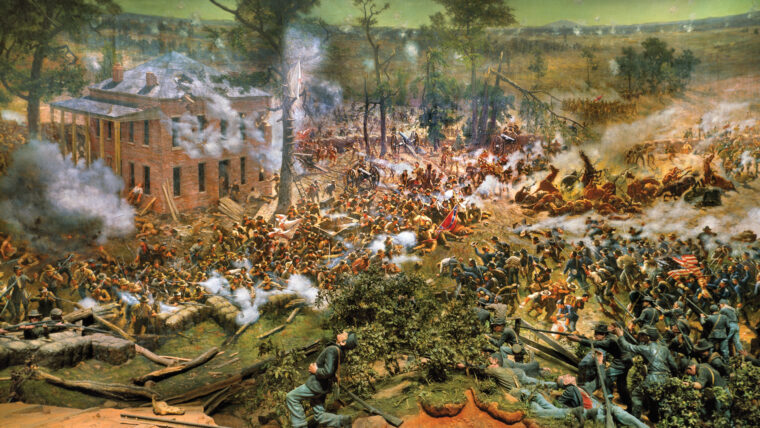
Jefferson Davis
The guide shook uncontrollably when the gray-clad general pointed his pistol at him in the backwoods of central Georgia on the evening of July 21, 1864. Read more
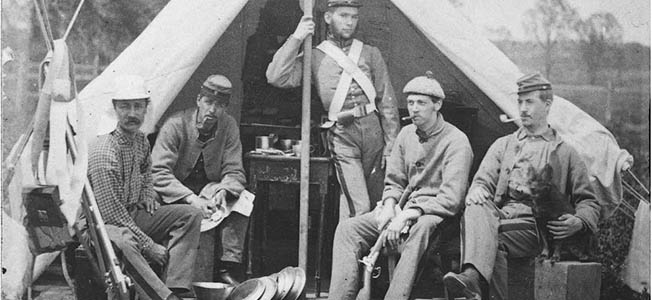
Jefferson Davis
U.S. President Abraham Lincoln had no military experience and discarded most of Lt. Gen. Winfield Scott’s so-called Anaconda Plan, which critics deemed too conservative. Read more
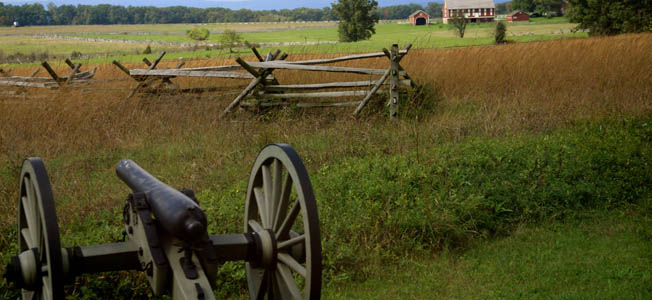
Jefferson Davis
The American Civil War was the tragic culmination of divergent perspectives on the proper conduct of the government of the United States and socio-economic issues that had been frequently at the forefront of American political life for decades. Read more
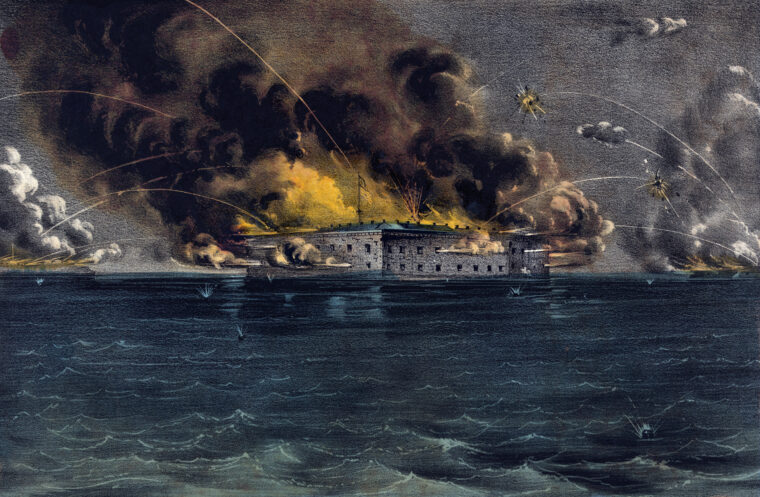
Jefferson Davis
Shortly after midnight on the morning of April 12, 1861, four men in a rowboat made their way across the pitch-black harbor at Charleston, South Carolina, toward Fort Sumter, an unfinished and architecturally insignificant masonry fort three miles out from the city where the harbor meets the Atlantic Ocean. Read more
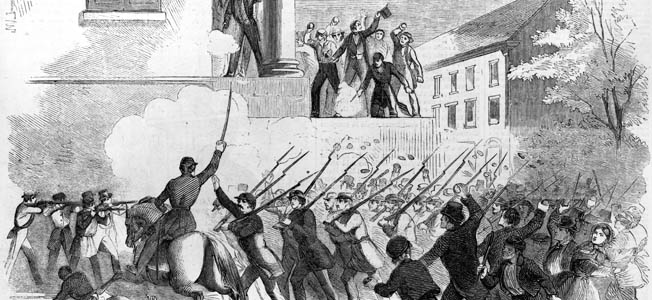
Jefferson Davis
At the beginning of 1861, Missouri was in turmoil. A slave state since its inception in 1820, Missouri had grown increasingly tied to urban industry. Read more
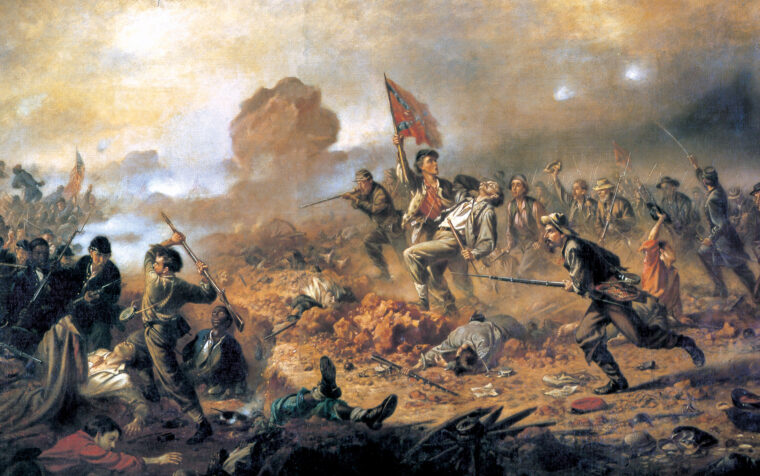
Jefferson Davis
Of all the unlikely heroes of the Civil War, none was more unlikely than Bushrod Johnson, Ohio-born Quaker turned Confederate general. Read more